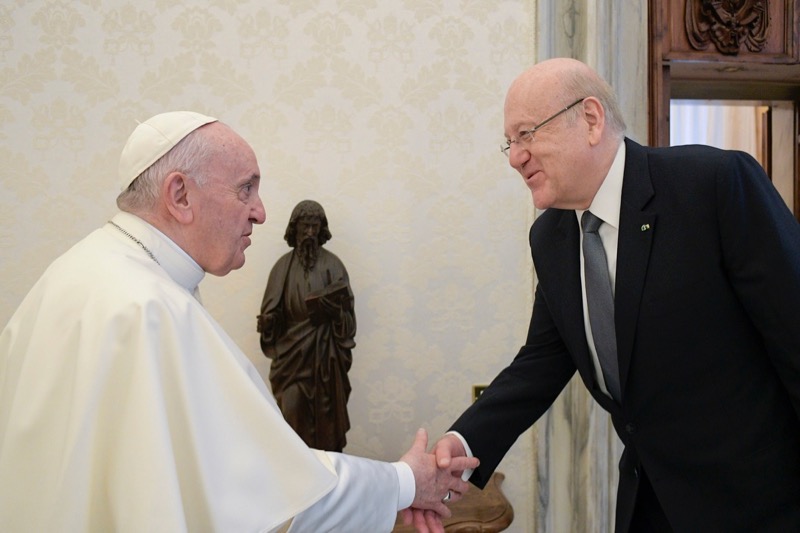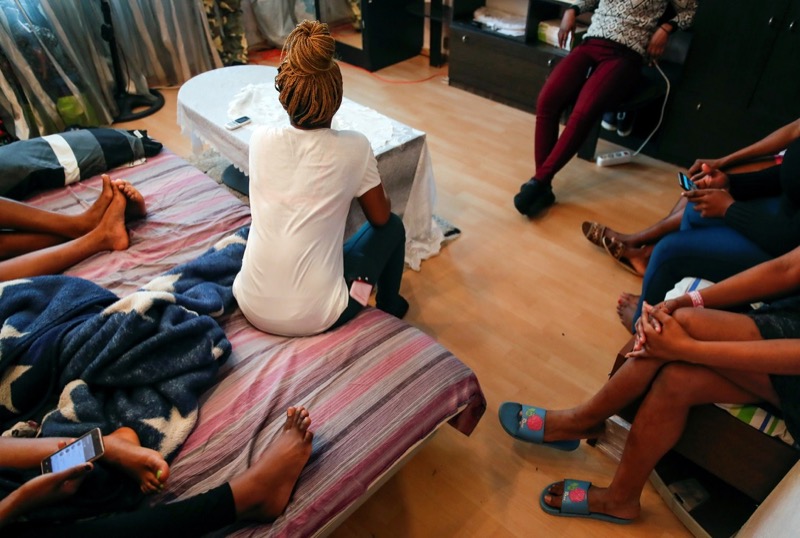I vividly remember sitting in a room at JRS UK and listening to one woman recount her experience of being trafficked to the UK and forced into sexual and labour exploitation. This exploitation had been arranged by people who brought her clandestinely into the country. She had turned to them for help because she was receiving death threats in her home country after she converted to Christianity. There was no safe or legal mechanism by which she could have travelled. Eventually, after she became ill and tried to resist her exploitation, her traffickers decided it wasn’t worth continuing anymore. They called immigration enforcement, and the woman was taken to detention.
People often become vulnerable to traffickers out of sheer desperation. This can be desperation to get away from danger, to find sanctuary, or to find a way to support their families. The difficulty of crossing borders makes everything so much worse, and compounds the danger of their situation.
A wide range of measures in the Nationality and Borders Bill aim to punish people who cross borders irregularly. This is ostensibly intended to counter both people smuggling and trafficking, but it will instead push more people like her into the hands of traffickers and make it harder for them to seek help from authorities. In this way, it will create optimum conditions for trafficking.
First, the Bill increases criminal penalties for entering the UK without documents. It also tries to strip away protection from prosecution that the Refugee Convention affords to people who must cross borders irregularly in order to claim asylum. This will make it very difficult for trafficking victims from outside of the UK to go to the police.
Time and again, victims of trafficking are re-victimised by a system that is more concerned with their immigration status than it is with helping them. JRS UK’s detention outreach team frequently encounters survivors of trafficking held in immigration detention. These are people who have been badly let down by the system. Many have been forced to work in cannabis factories, then criminalised for their involvement in cannabis production. We meet them after they have served prison sentences and been transferred to immigration detention pending deportation. There have been so many opportunities along the way for different authorities to pick up on indications that these men have been trafficked, and try to get them the help they so badly need. These opportunities have been missed, and the men have been incarcerated instead. The detention of trafficking survivors is not an anomaly. The charity Women for Refugee Women worked with Chinese women trafficked for sexual exploitation, forced to work in brothels, and subsequently held in immigration detention. Many had been transferred there directly following police raids on the brothels at which they were held.
And nearly always, victims of trafficking have been warned by their traffickers that, if they go to the authorities, they won’t receive help, but only be incarcerated and ultimately removed from the UK. Tragically, as in the case of the woman I mentioned at the start of this blog, these traffickers are often proved right. Penalising people for lack of immigration documents thus plays directly into traffickers hands. This happens at the same time as the government is making plans to make it harder for people seeking asylum to reach the UK at all – for example by turning back boats in the middle of the Channel. This is despite ample evidence that a policy focused on closing borders pushes vulnerable people to make more dangerous journeys. Consider the woman I mentioned With all options cut off, people desperate to move will be even more vulnerable to anyone offering them a route to do so, and therefore to exploitation.
At the same time, the Bill makes it harder for victims of trafficking to gain recognition as such. For example it raises the threshold of proof for recognition as a potential victim, and it instructs decision-makers to be suspicious of people claiming to be victims, or bringing evidence of being a victim, after what was apparently the earliest opportunity. This is despite the fact that many victims really struggle to talk about or understand their experience, and also feel serious distrust of authorities. Already, victims face an uphill battle to gain recognition and support. The Bill makes that battle harder still. It’s hard to avoid the conclusion that its authors care more about ensuring no one who is not a victim of trafficking manages to access support than ensuring that victims are supported and protected, and traffickers held to account. We are facing a political worldview in which it is preferable allow traffickers to operate with impunity than create an environment where people without immigration documents can seek help without fear.
This is the fourth in a series of five blogs by Sophie Cartwright on the Nationality and Borders Bill.
1. An introduction to the Nationality and Borders Bill.
2. The Nationality and Borders Bill will make life in the asylum system much bleaker.
3. The Nationality and Borders Bill treats hostility as a virtue.



 Loading ...
Loading ...
What do you think?
You can post as a subscriber user ...
User comments (0)